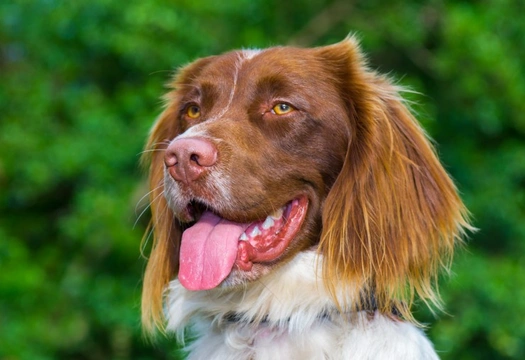
Are the hiccups a problem for your dog?
Hiccups are small, involuntary spasms of the diaphragm that can affect a whole range of mammals, including dogs and of course, people. While you may think it is fairly rare to witness a dog with a fit of the hiccups (and this can be rather amusing to see!) hiccups are actually fairly common in dogs, and particularly puppies, just like young children, seem to be more apt to fits of hiccups than adults are!
If you are wondering if hiccups are just a potentially amusing occasional anomaly or are actually a potential problem for your dog, or if you just want to get a better understanding of hiccups and why they happen in the dog, this article is for you. Read on to learn more about hiccups in dogs, and whether or not this is a problem for them.
Why do dogs get the hiccups?
As mentioned, puppies are more likely to get the hiccups than adult dogs, just as children are more prone to them than adults! This is due to a variety of factors, including the fact that puppies (and children) tend to be more excitable than adults! However, some breeds of dog, such as the Springer spaniel and the Australian cattle dog tend to be highly excitable even as adults, and so may be more prone to hiccupping bouts!
Hiccups themselves happen as a result of the diaphragm going into spasm, as air rushes into the lungs quickly and presses on the vocal cords, producing a gulping, hiccupping sound. Usually, bouts of the hiccups in dogs are very short, but can potentially continue for a few minutes at a time, or even in some cases, hours!
Generally, a hiccupping dog is not a problem, nor at any risk of developing one, and so hiccups are rarely indicative of any reason to worry. Some of the main causes of hiccups in dogs include excitement, stress, eating too quickly, eating something spicy, inhaling something irritable to the lungs such as tobacco smoke, or a low body temperature.
However, in very rare cases, hiccups may potentially be symptomatic of a more serious underlying problem, which may include conditions such as pneumonia, an asthma attack, pericarditis, hypothermia, or a defect of the respiratory system.
Dealing with the hiccups
In most cases, hiccups will go away on their own relatively quickly, and do not normally mean that there is anything wrong with your dog, nor do they potentially cause any problems to develop. This means that generally, leaving your dog alone and not trying to intervene is the best approach, and the hiccups will go away on their own without the need for you to step in!
One exception to this is if your dog has developed the hiccups due to a lowering of body temperature, as hiccups can occur as part of the descent into hypothermia. If this is the case, you will likely be aware that a combination of events have led to your dog getting too cold, and work to raise their body temperature, which will then put a stop to the hiccups.
If your dog regularly gets the hiccups and this does not seem to be related to excitement, gulping down their food or something else minor, it is a good idea to get your dog checked out by the vet to ensure that they are not suffering from one of the more serious but thankfully rare conditions that can lead them to develop the hiccups.
There are a range of home remedies and interventions that you can perform at home if your dog’s hiccups are bothering them or go on for more than a couple of minutes, but again, if your dog is prone to getting bouts of the hiccups, check with your vet for their approval to try these out next time it happens at home.
- Offering your dog water can help to counteract the hiccups, but your dog should not be forced to drink for any reason, nor have water forced into their mouths. Adding a little maple syrup or honey to the water can also help.
- Massaging the dog’s chest lightly in the area of the bottom of the diaphragm can help too.
- Just as is often the case with people, surprising your dog or doing something that suddenly grabs their attention can also help to end a bout of the hiccups. Try showing them their favourite toy, or using a squeaky toy to make a sudden, unusual noise, which may shock your dog out of their bout of the hiccups!
- If your dog’s hiccups go on for longer than half an hour, it is also advisable to speak to your vet to find out if something is causing the hiccups to occur, as resolving any potential underlying condition should help to resolve the issue. If your dog goes through regular and severe bouts of hiccups without any obvious underlying cause, your vet may even prescribe medications to loosen up the restricting band of the diaphragm, such as haloperidol.
- In extremely rare cases, ongoing, severe or repeated bouts of the hiccups that cannot be resolved may require surgery, in order to relax the phrenic nerve of the diaphragm, one of the integral parts of the physical hiccupping process.



